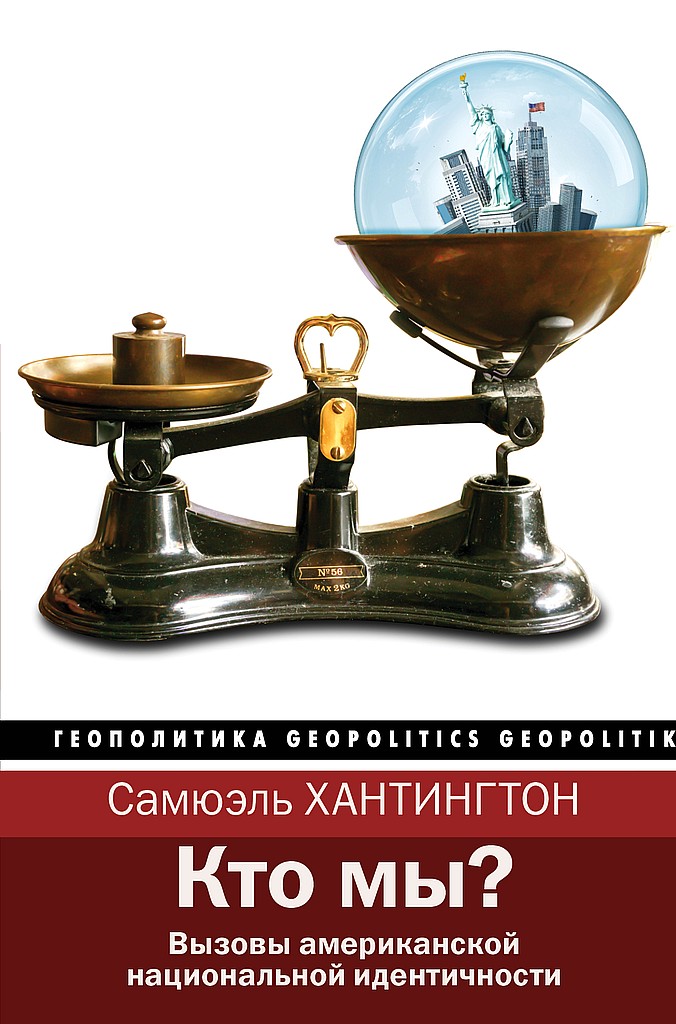II, eds.,
Beyond Confederation: Origins of the Constitution and American National Identity (Chapel Hill: University of North Carolina Press, 1987), p. 339; Merritt,
Symbols of American Community, p. 58.
{162} Albert Harkness, Jr., «Americanism and Jenkins’ Ear», Mississippi Valley Historical Review, 37, (June 1950), p. 88; E. McClung Fleming, «Symbols of the United States: From Indian Queen to Uncle Sam», in Ray B. Browne, Richard H. Crowder, Virgil L. Lokke, and William T. Stafford, eds., Frontiers of American Culture (Lafayette, IN: Purdue University Studies, 1968), p. 4.
{163} Merritt, Symbols of American Community p. 56, 125, 144, Table 8–2.
{164} Fisher Ames quoted in Daniel J. Boorstin, The Americans: The National Experience (New York: Random House, 1966), p. 403, 416; Elbridge Gerry quoted in Max Farrand, ed., The Records of the Federal Convention of 1787: Proceedings, vol. 1 (New Haven: Yale University Press, 1966), p. 552; Anders Stephanson, Manifest Destiny: American Expansion and the Empire of Right (New York: Hill & Wang, 1995), p. 30; Henry Steele Commager, Jefferson, Nationalism, and the Enlightenment (New York: George Braziller, 1975), p. 162; John Marshall quoted in Paul Johnson, A History of the American People (New York: HarperCollins, 1997), p. 423; John Calhoun, Letter to Oliver Dyer, 1 January 1849; John Bodnar, Remaking America: Public Memory, Commemoration, and Patriotism in the Twentieth Century (Princeton: Princeton University Press, 1992), p. 21ff; Zelinsky, Nation into State, p. 218.
{165} Commager, Jefferson, Nationalism, and the Enlightenment, p. 159.
{166} Seymour Martin Lipset, The First New Nation: The United States in Historical and Comparative Perspective (New York: Norton, 1979), p. 18ff.
{167} Zelinsky, Nation into State, p. 218.
{168} Boorstin, The Americans, p. 362–65.
{169} Ibid., p. 370, 373, 367.
{170} Bodnar, Remaking America, p. 21, 26; Stuart McConnell, «Reading the Flag: A Reconsideration of the Patriotic Cults of the 1890’s», in John Bodnar, ed., Bonds of Affection: Americans Define Their Patriotism (Princeton: Princeton University Press, 1996), p. 107; Lyn Spillman, Nation and Commemoration: Creating National Identities in the United States and Australia (New York: Press Syndicate of the University of Cambridge, 1997), p. 24; Zelinsky, Nation into State, p. 218–19.
{171} Abraham Lincoln, «The Perpetuation of our Political Institutions», speech, 27 January 1837, Springfield, IL, in The Speeches of Abraham Lincoln (New York: Chesterfield Society, 1908), p. 9–10.
{172} Merle Curti, The Roots of American Loyalty (New York: Columbia University Press, 1946), p. 169–170.
{173} Boorstin, The Americans p. 402; Gaines M. Foster, «A Christian Nation: Signs of a Covenant», in Bodnar, ed., Bonds of Affection, p. 123; Spillman, Nation and Commemoration, p. 24–25.
{174} Morton Keller, Affairs of State: Public Life in Late Nineteenth Century America (Cambridge: Belknap Press of Harvard University Press, 1977), p. 39; Willard Saulsbury quoted in Keller, Affairs of State, p. 69.
{175} John Higham, Strangers in the Land: Patterns of American Nativism, 1860–1925 (New Brunswick, N. J.: Rutgers University Press, 1988), p. 344.
{176} Robert D. Putnam, Bowling Alone: The Collapse and Revival of American Community (New York: Simon & Schuster, 2000), p. 384ff, citing Theda Skocpol, «How Americans Became Civic», in Theda Skocpol and Morris p. Fiorina, eds., Civic Engagement in American Democracy (Washington, D. C.: Brookings Institution Press, 1999).
{177} Cecilia Elizabeth O’Leary, To Die For: The Paradox of American Patriotism (Princeton: Princeton University Press, 1999), p. 49.
{178} Zelinsky, Nation into State, p. 105–106, 106; McConnell, «Reading the Flag», p. 113.
{179} Higham, Strangers in the Land, p. 75–76.
{180} Cecilia Elizabeth O’Leary, «‘Blood Brotherhood: ’ The Racialization of Patriotism, 1865–1918», in Bodnar, ed., Bonds of Affection, p. 54, 73, 75–76; Curti, The Roots of American Loyalty, p. 192.
{181} O’Leary, «‘Blood Brotherhood,’» in Bodnar, ed., Bonds of Affection, p. 57–58, 64; Higham, Strangers in the Land, p. 170–71.
{182} Zelinsky, Nation into State, p. 144, citing Boyd C. Shafer, Faces of Nationalism: New Realities and Old Myths (New York: Harcourt Brace Jovanovich, 1972), p. 203; O’Leary, «‘Blood Brotherhood,’» p. 65, citing Bessie Louise Pierce, Public Opinion and the Teaching of History in the United State (New York: Alfred A. Knopf, 1926), p. 13–16.
{183} Curti, Roots of American Loyalty, p. 190.
{184} Zelinsky, p. 29, 56, 150; Bessie Louise Pierce, Civic Attitudes in American School Textbooks (Chicago: The University of Chicago Press, 1930), p. 254.
{185} Zelinsky, Nation into State, p. 86–88.
{186} Catherine Albanese, «Requiem for Memorial Day: Dissent in the Redeemer Nation», American Quarterly, 26 (1974), p. 389; Zelinsky, Nation into State, p. 74.
{187} Zelinsky, Nation into State, p. 204–5.
{188} Ibid., p. 202–3; O’Leary, To Die For, p. 201–24; Boleslaw Mastai and Marie-Louise D’Orange, The Stars and Stripes: The American Flag As Art and As History from the Birth of the Republic to the Present (New York: Knopf, 1973), p. 130, quoted in Zelinsky, Nation into State, p.202–3.
{189} O’Leary, To Die For, p. 233–234, citing Halter v. Nebraska 205 U. S. 34–46 and quoting Halter et al. v. State 105 Northwestern Reporter, p. 298–301.
{190} J. Hector St. John de Crévecoeur, Letters from an American Farmer and Sketches of 18th-Century America (New York: Penguin, 1981), p. 68, 70; Israel Zangwill, The Melting Pot: A Drama in Four Acts (New York: Arno Press, 1975), p. 184.
{191} Milton M. Gordon, Assimilation in American Life: The Role of Race, Religion, and National Origin (New York: Oxford University Press, 1964), p. 89; Michael Novak, Further Reflections on Ethnicity (Middletown, PA: Jednota Press,1977), p. 59.
{192} Horace M. Kallen, The Structure of Lasting Peace: An Inquiry into the Motives of War and Peace (Boston: Marshall Jones Company, 1918), p. 31; Horace M. Kallen, Cultural Pluralism and the American Ideal: An Essay in Social Philosophy (Philadelphia: University of Pennsylvania Press, 1956); Horace M. Kallen, Culture and Democracy in the United States:



